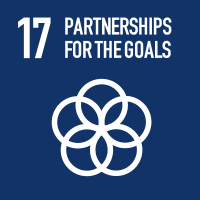Studying at the University of Verona
Here you can find information on the organisational aspects of the Programme, lecture timetables, learning activities and useful contact details for your time at the University, from enrolment to graduation.
Study Plan
This information is intended exclusively for students already enrolled in this course.If you are a new student interested in enrolling, you can find information about the course of study on the course page:
Laurea in Studi strategici per la sicurezza e le politiche internazionali - Enrollment from 2025/2026The Study Plan includes all modules, teaching and learning activities that each student will need to undertake during their time at the University.
Please select your Study Plan based on your enrollment year.
1° Year
| Modules | Credits | TAF | SSD |
|---|
2° Year activated in the A.Y. 2024/2025
| Modules | Credits | TAF | SSD |
|---|
2 modules among the following3° Year It will be activated in the A.Y. 2025/2026
| Modules | Credits | TAF | SSD |
|---|
2 modules among the following| Modules | Credits | TAF | SSD |
|---|
| Modules | Credits | TAF | SSD |
|---|
2 modules among the following| Modules | Credits | TAF | SSD |
|---|
2 modules among the following| Modules | Credits | TAF | SSD |
|---|
Legend | Type of training activity (TTA)
TAF (Type of Educational Activity) All courses and activities are classified into different types of educational activities, indicated by a letter.
Diritto internazionale/international law (2024/2025)
Teaching code
4S010553
Teacher
Coordinator
Credits
6
Language
Italian
Scientific Disciplinary Sector (SSD)
IUS/13 - INTERNATIONAL LAW
Period
Sem. 2A, Sem. 2B
Courses Single
Authorized
Learning objectives
The course aims at providing students with the ability to understand the fundamental characteristics of the international legal system. Starting from the main features of the international community, its historical evolution and its subjects/actors, the course addresses the issue of the formation, the ascertainment and the coercive implementation of international legal rules, but also leads the participants to reflect on the extent to which international law pursues strategic objectives for society, such as sustainable development, international peace and security and public health.
Prerequisites and basic notions
To understand the topics covered in the course, students must have general legal notions on the structure of the State and the sources of law. This precondition is valid for both attending and non-attending students, and is proven by passing the relevant first year exams.
Program
Course Objectives:
– Understand the structure, sources, and subjects of International Law.
– Analyze the role and function of international organizations and courts.
– Apply International Law principles to contemporary global issues.
– Critically assess the impact of International Law on State behaviour and international relations.
These objectives will be achieved through comprehensive lectures and direct involvement of students in the analysis of study material and case-law. This will help strengthen their critical thinking and their ability to explain and argue the topics covered with appropriate terminology. Based on the knowledge acquired, students will be able to apply concepts and logic of international law to the analysis of specific cases.
Course Structure:
A – The Structure of International Law:
- The Nature and Fundamental Concepts of International Law
- The Subjects of International Law
- The Sources of International Law
- Jurisdiction and Immunities
- International Diplomacy
- The Individual in International Law, The protection of Human Rights
- The United Nations
- The Law of State Responsibility
- International Courts and Tribunals
- Sanctions, Countermeasures, and Collective Security
B - The Substance of International Law
- International Peace and Security, The Use of Force
- Law of Armed Conflict
- International Criminal Law
- The Law of the Sea, the Air, and Outer Space
- The Global Economy and Global Economic Governance
- Environment, Sustainable Development, Public Health.
Bibliography
Didactic methods
The course is structured in a series of lectures and seminars, with the possible assistance of telematic tools. Supplementary reading material related to the topics covered in class, such as case-law, texts of resolutions, declarations, and treaties, is indicated during the lessons.
Required readings:
- J. Klabbers, International Law, 4th edition, Cambridge University Press, 2023.
Tutoring activities are planned and agreed upon to support students.
Learning assessment procedures
Individual interview (lasting about 20 minutes)
Evaluation criteria
- Attending Students: The exam (interview) is designed to reflect the material covered in lectures, allowing students to demonstrate the understanding and analytical skills developed through active participation and engagement with the course content.
- Non-Attending Students: The exam (interview) emphasizes comprehensive knowledge and independent study by students, with particular attention to the application of general principles, concepts, and detailed analysis based on the entire syllabus and recommended readings.
Criteria for the composition of the final grade
Final Examination: 100% of the final mark (0-30 scale)
Exam language
Italiano, English



